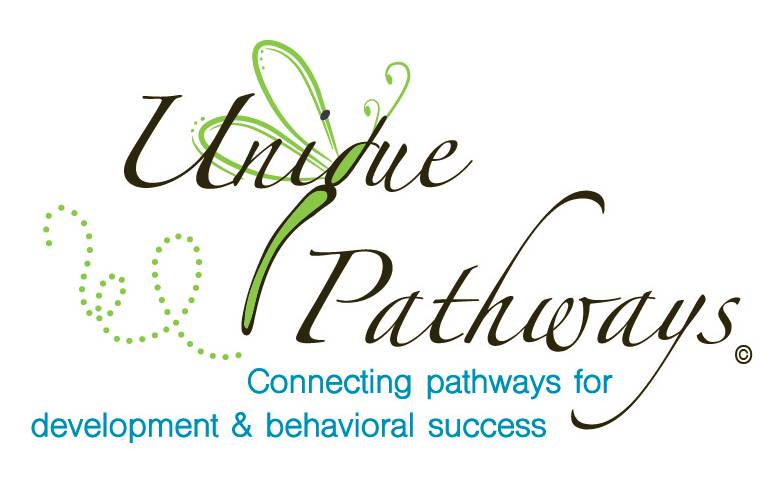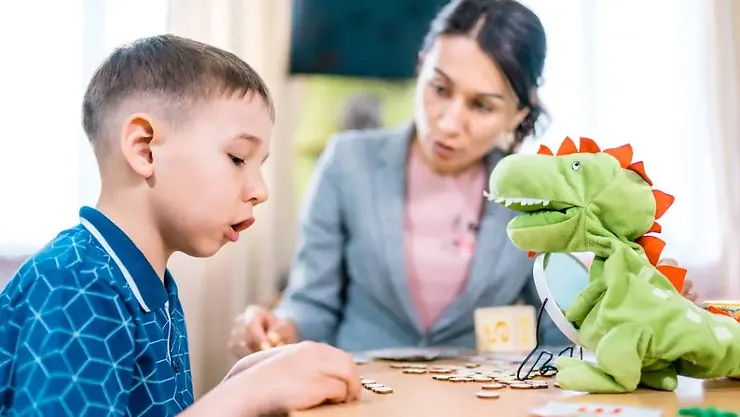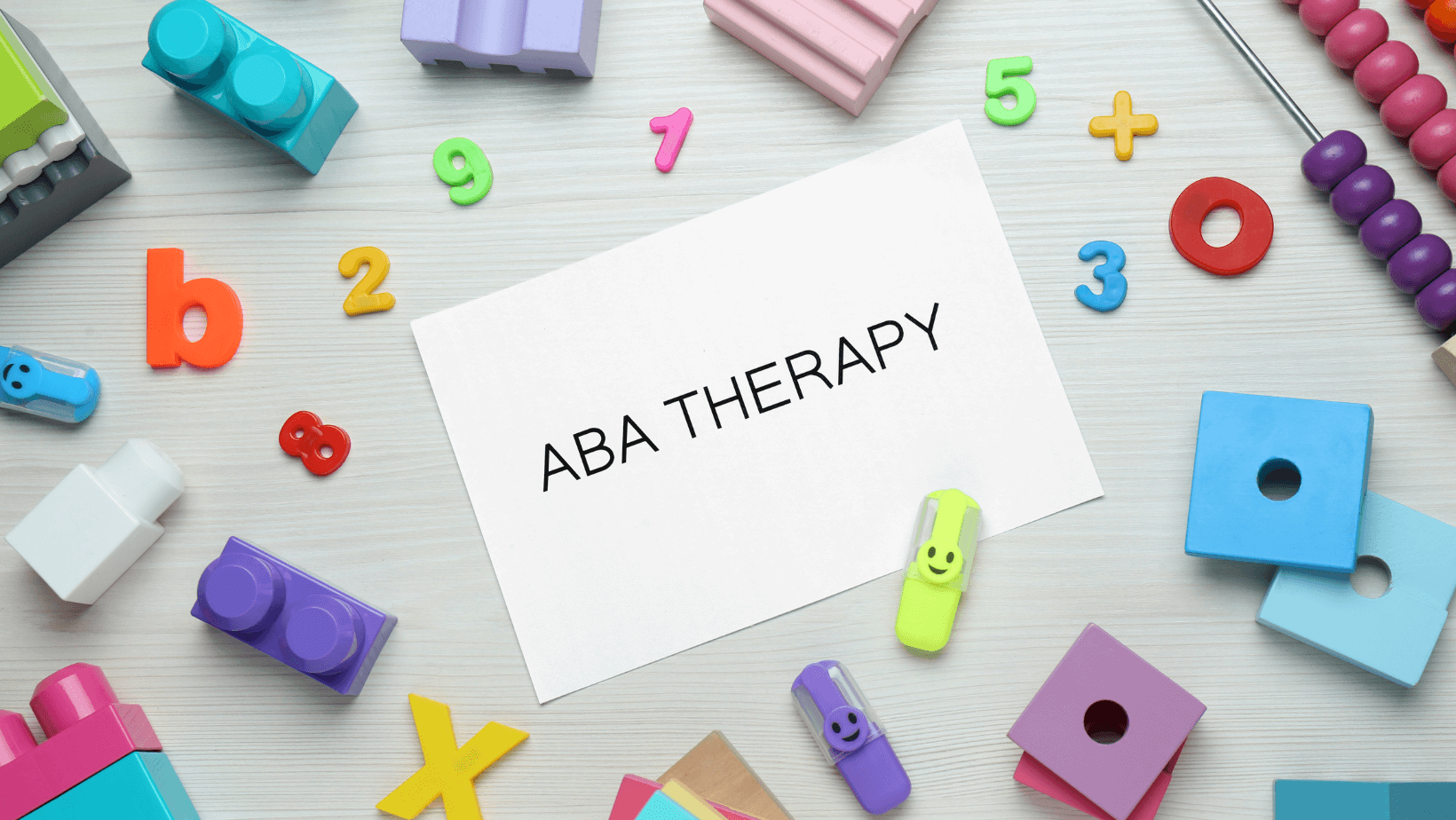Speech therapy involves strategies and treatments administered by licensed speech language pathologists to address difficulties in speech and language. These services are vital for enhancing communication skills, which are foundational to social and academic success.
Speech disorders can vary widely; they might involve trouble with forming sounds (articulation), difficulties with flow, rhythm, and speed of speech (fluency disorders), or challenges with understanding and using language. Early intervention speech therapy is often recommended to address these issues promptly.
Deciding when to start speech therapy can be a pivotal step toward nurturing effective communication skills. In this blog, we’ll guide you through the stages at which speech therapy may be most beneficial.
Early Signs and Indicators
From the first words to simple sentences, children hit various speech development milestones as they grow. Most babies should start cooing and babbling by 6 months, and by their first birthday, many are saying their first words.
If a child is not speaking single words by 15 months or combining two words by age 2, this may signal a speech delay. Other children might have difficulties pronouncing sounds or may not seem to understand simple instructions, which can also indicate the need for a language evaluation.
Age-Specific Considerations
Birth to 12 Months
Babies begin to recognize sounds and start babbling as part of early speech development. Parents should listen for coos and laughter, and later, attempt to imitate speech sounds. Early communication includes gestures like pointing and waving. If these are lacking, or if the baby shows little interest in communication, it might be beneficial to consult a child’s pediatrician or a speech language pathologist.
1 to 3 Years
During this period, toddlers rapidly expand their vocabulary, from single words at around 12 months to complex phrases and sentences by three years. If a toddler uses fewer words than peers or struggles with simple words and phrases, it may be time to start speech therapy. These early years are critical for addressing speech issues and can greatly benefit from early intervention.
3 to 6 Years
Kids refine their ability to pronounce different sounds during this stage. It’s normal for some sounds to be hard to pronounce, but persistent difficulties might require professional help. Trouble with certain sounds or stuttering that persists may indicate the need for a speech and language evaluation by a licensed speech therapist.
6 to 12 Years
School-age children learn more complex language skills, which are important for reading, writing, and social interactions. Persistent stuttering or fluency disorders can impact a child’s confidence and school performance, making therapy sessions crucial.
Adolescents and Adults
For teenagers and adults, speech therapy may focus on more sophisticated language and social skills, as well as ongoing issues with fluency. Continued difficulties with communication can affect personal and professional relationships; thus, ongoing therapy can be beneficial.
Diagnostic Process and Evaluation
The journey to improved speech and language skills begins with an accurate and comprehensive evaluation. Screening is the first step in identifying individuals who may need a more detailed assessment. This can be done by a child’s pediatrician, a public school system, or a speech therapist. It often involves quick, simple tests to check if the child’s development aligns with typical speech milestones.
If screening indicates potential concerns, a formal assessment by a licensed speech language pathologist is essential. This detailed evaluation involves a variety of tests and observations to understand the child’s speech and language skills, such as their ability to understand language (receptive language) and their ability to express themselves (expressive language).
Factors Influencing Timing
When deciding the right time to begin speech therapy, several factors come into play, which can significantly influence the outcome:
Severity of Speech Delay
The more pronounced the delay or disorder, the more urgent the need for early intervention speech therapy. Severity can range from simple delays in speaking first words to more complex disorders that impact social skills and academic performance.
Underlying Causes and Co-occurring Conditions
Understanding whether a speech delay is due to a developmental issue, such as hearing loss, or is part of a broader condition like autism spectrum disorder, is crucial for tailored therapy. Speech therapy often coordinates with other therapies in such cases to provide comprehensive care.
Family and Social Support Systems
The level of support from family and the presence of social systems that encourage communication development play a significant role in therapy. Supportive environments can enhance the effectiveness of speech therapy sessions and encourage practice outside of clinical settings.
Early Intervention Benefits
Early intervention speech therapy can drastically improve a child’s language skills, making it easier for them to express their thoughts and needs. It also helps in developing proper eating and swallowing techniques, which are important for children with feeding disorders.
Intervening early not only helps in correcting speech and language issues but also aids in other areas of development, such as cognitive and social skills. Children who receive speech therapy early are often better prepared for school and social interactions, laying a strong foundation for lifelong learning and relationships.

Collaboration with Educational Institutions
Schools often play a vital role by identifying students who may benefit from speech therapy and providing necessary interventions within the school setting. Many schools have licensed speech therapists on staff to assess and treat students, ensuring that therapy is an integral part of their educational experience.
Incorporating speech therapy services directly into the school curriculum can enhance learning outcomes. This approach ensures that children receive support during their regular school activities, making therapy a seamless part of their educational day. It helps in normalizing therapy for students and integrates their development goals with academic objectives.
Financial and Insurance Considerations
Navigating the financial aspects of speech therapy involves understanding the various insurance and financial assistance options available. Most health insurance plans, including private insurers, provide some level of coverage for speech therapy. However, the details, such as the number of sessions allowed per year, copays, and the necessity for a pediatrician’s referral, can vary.
For those eligible, Medicaid offers comprehensive coverage for children’s speech therapy through the Early and Periodic Screening, Diagnostic, and Treatment (EPSDT) benefit. Medicare may also cover medically necessary speech therapy, especially following medical events like strokes that impair speech.
Parental Guidance and Support
Parents play a critical role in supporting their child’s speech and language development. It’s essential for parents to understand the milestones of speech and language development to recognize early signs of delays. Speech therapists often provide resources and training for parents to help them identify and understand these milestones.
Therapists can also guide parents in integrating effective speech practices at home. This might include reading together, playing board games that promote language skills, and incorporating daily routines that encourage speech and language use.
Therapist-Patient Relationship
The success of speech therapy often hinges on the relationship between the therapist and the patient. A trusting relationship encourages patients to engage actively in therapy sessions, which can lead to more effective outcomes. Speech therapists often use strategies tailored to each child’s interests and comfort level to build this trust.
Clear and open communication between the therapist and the patient, and with the patient’s family, ensures that therapy goals are understood and met. Regular feedback and discussion about progress and challenges help in adjusting therapy techniques and strategies as needed. This collaborative approach is essential for the success of speech therapy sessions.
Summary: A Roadmap to Effective Speech Therapy Initiation
Understanding when to initiate speech therapy across different age groups and recognizing the early signs of speech delays are fundamental in setting the stage for successful communication development. The collaborative role of educational institutions and the importance of early intervention cannot be overstressed.
Early intervention not only addresses immediate communication challenges but also significantly influences long-term academic and social success. With the right information on financial and insurance options and support systems, every child and adult requiring speech therapy can access the help they need to improve their quality of life and unlock their full communication potential.









